Studland: National Trust says heath fire could have been worse
- Published
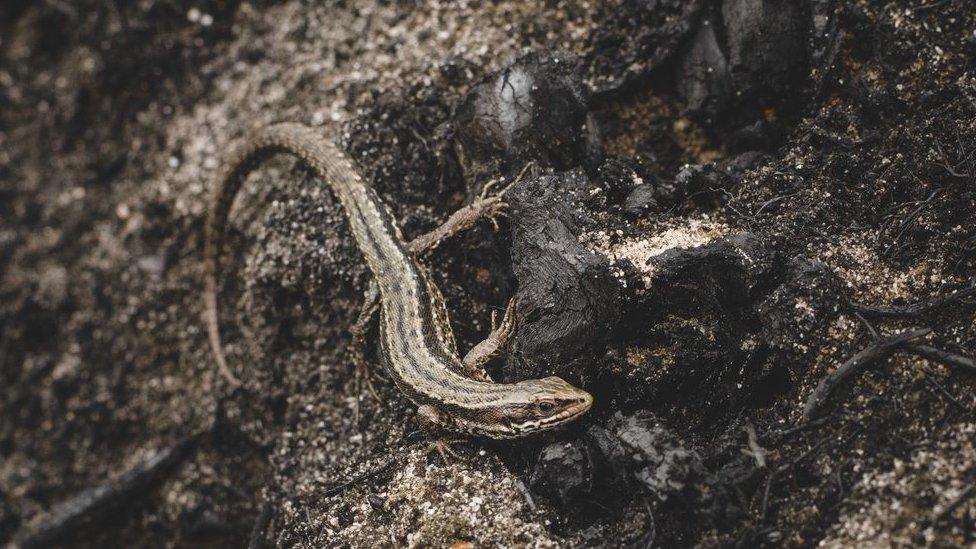
A common lizard found by National Trust rangers on Studland Heath after the fire swept across acres of land
A fire on Studland Heath that destroyed the habitats of some of the UK's rarest reptiles "could have been a lot worse", the National Trust has said.
The charity said the fire scorched the homes of sand lizards and smooth snakes on Dorset's Purbeck peninsula.
Staff and volunteers managed to rescue several common lizards but feared other reptiles had been lost, it added.
A disposable barbecue is believed to have caused the blaze.
The heathland is one of the most biodiverse places in the country and home to 450 rare, threatened or protected species, the trust said.
It added the site was the UK's first Super National Nature Reserve, external and one of only a few places with all six species of native reptile.
However, over the weekend of 12 to 15 August, almost 12 acres (five hectares) went up in smoke.
Dorset and Wiltshire Fire and Rescue service spent three days fighting the flames.
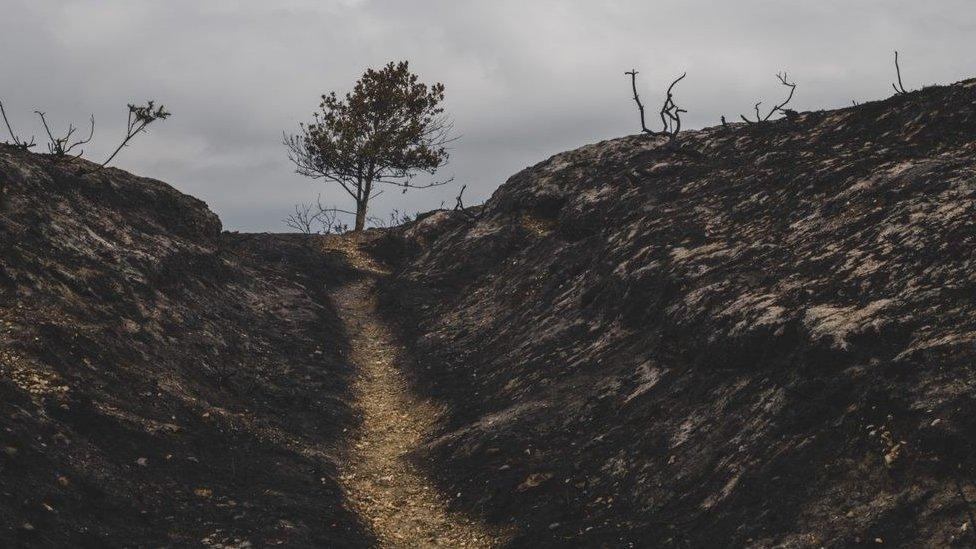
The trust fears many lizards died in the fire, with their habitat taking years to recover
The trust said had it not been for the "quick actions of the fire service" the damage could have been far worse and it was grateful to the 90 firefighters who fought the blaze.
However, a small study centre and bird hide was destroyed in the flames, it said.
Area ranger, Ben Cooke, said: "It's a really sensitive time for these animals - sand lizard eggs hatch between late August and September, and smooth snakes, the UK's rarest reptile, will have been incubating eggs internally."
He said it was "upsetting" for the team seeing its "conservation work undone".
Other species which may have been affected include silver-studded blue butterflies, but the trust believed nightjars and Dartford warblers, whose breeding season had finished, likely escaped the fire.
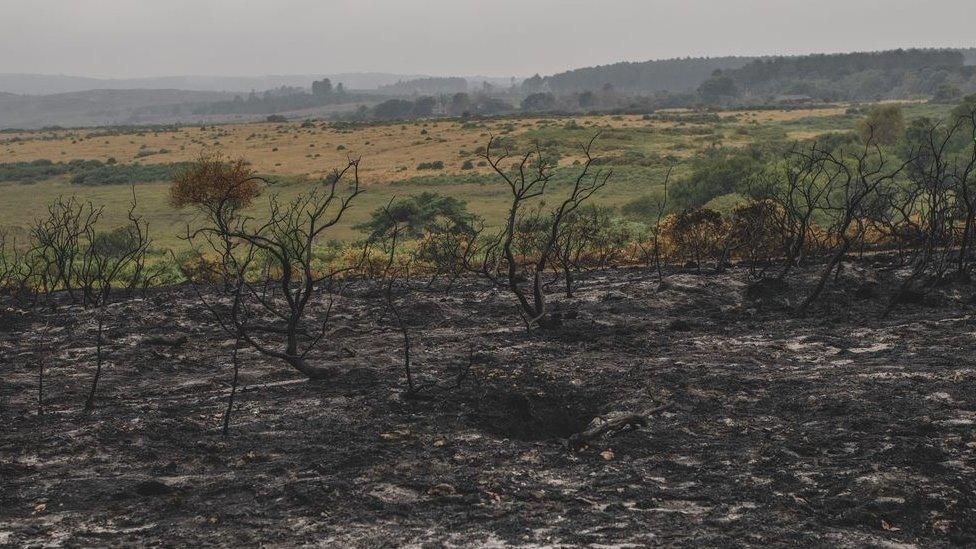
The trust said had it not been for the quick actions of the fire service the damage could have been "much worse"
Rangers had mown fire breaks to minimise the spread of any blaze only days before flames broke out, the trust said.
Staff expect the scorched land to "bounce back", but believe it could take "years to fully recover", especially given a fire occurred in a similar area a decade ago.
The trust added the area would be closed for safety reasons - a suspected WW2 bomb was found by the firefighters - while "we carry out the necessary surveys and remedial works".

Follow BBC South on Facebook, external, Twitter, external, or Instagram, external. Send your story ideas to south.newsonline@bbc.co.uk, external.
Related topics
- Published13 August 2022
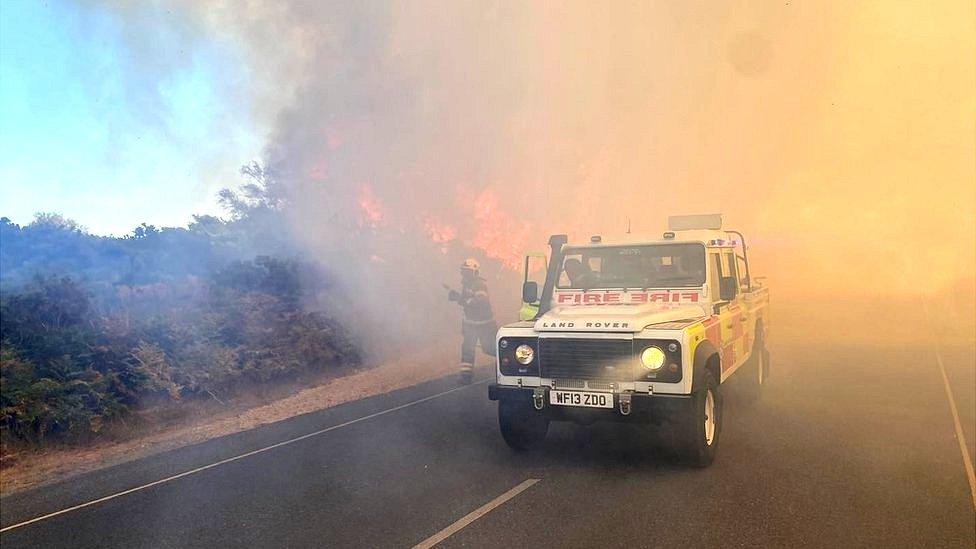
- Published13 August 2022
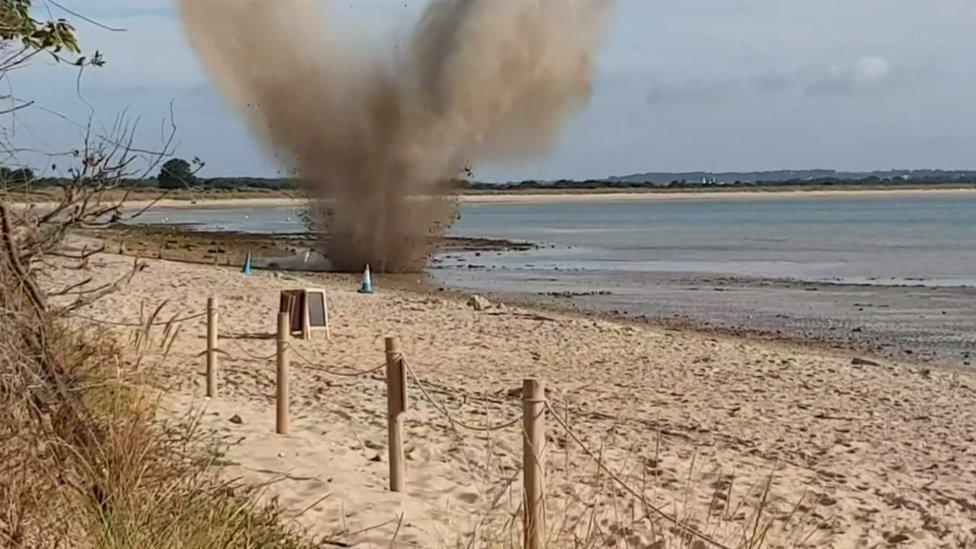
- Published15 August 2022
